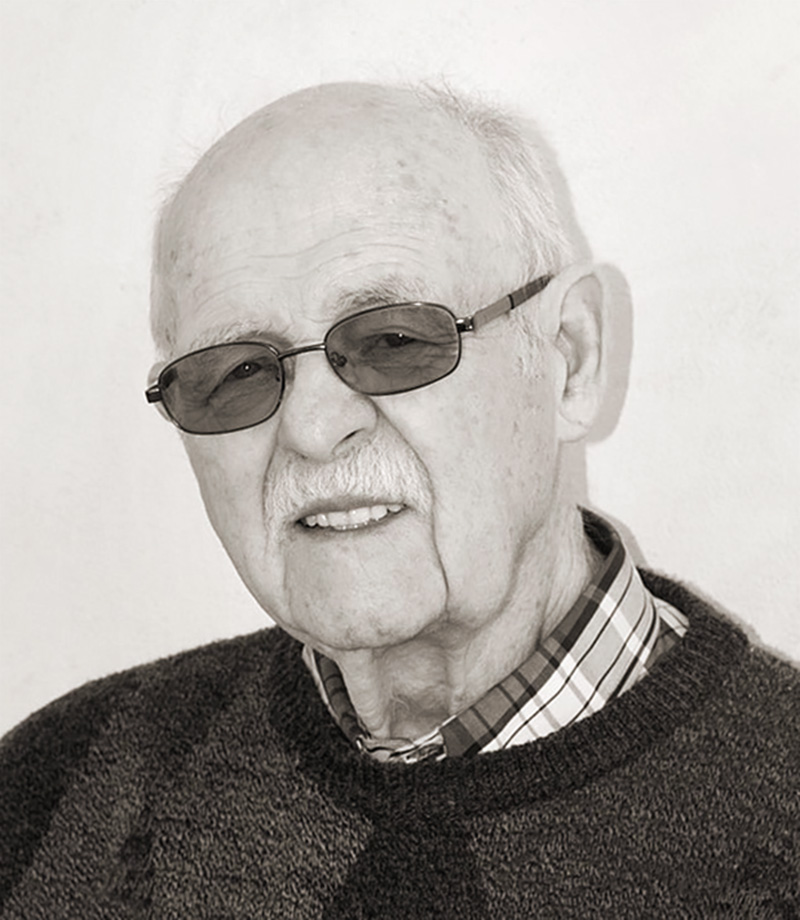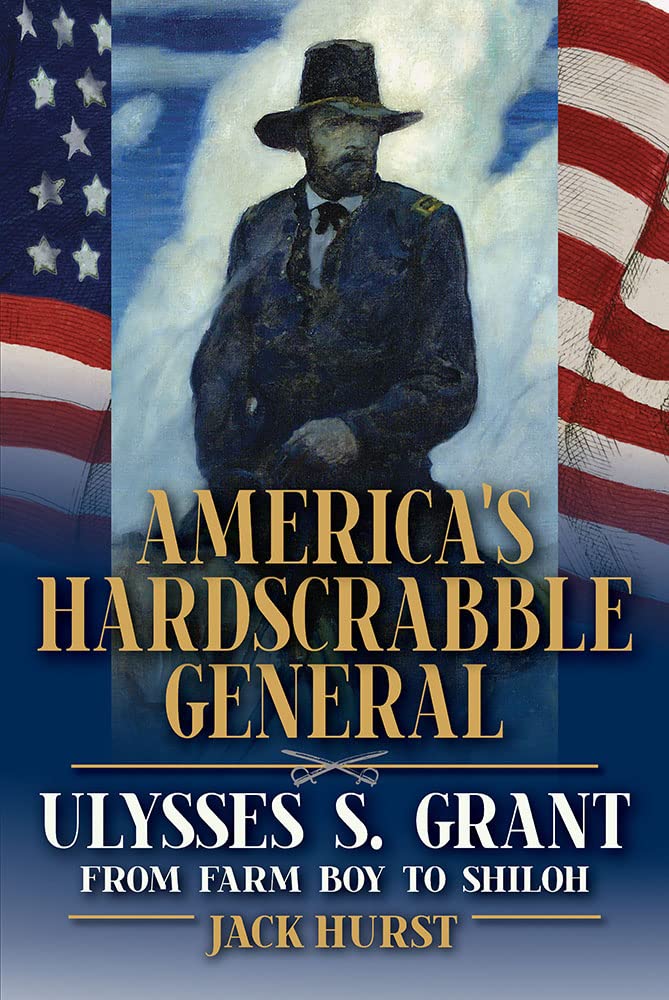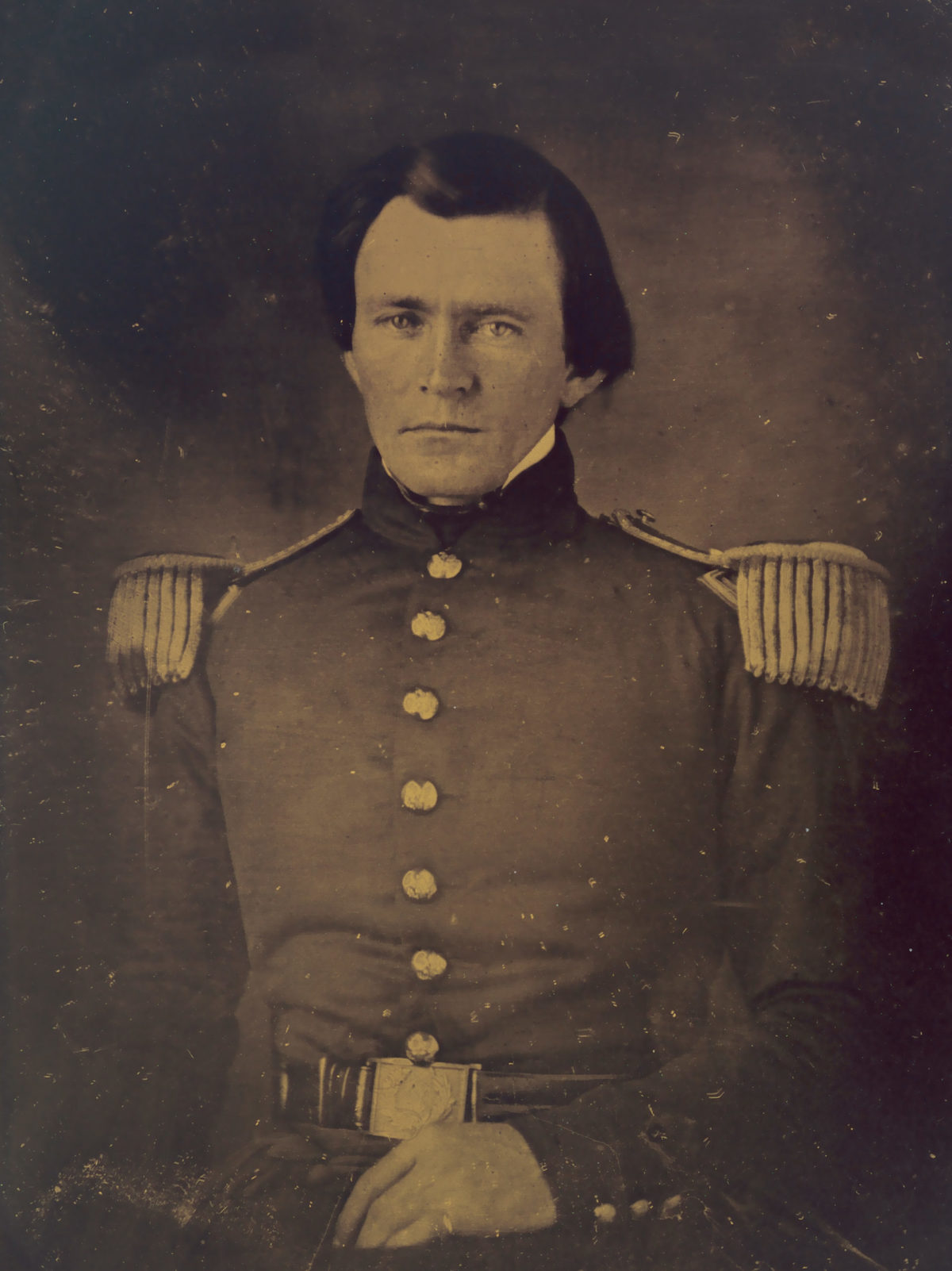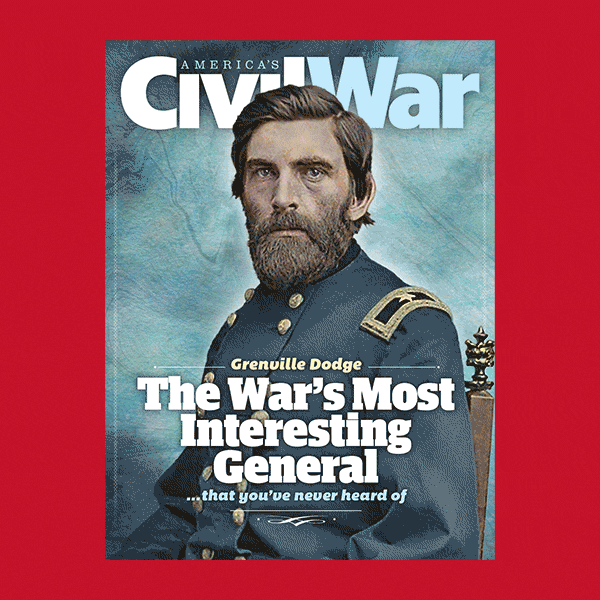It could be an American fairy tale. Once upon a time, a young boy who loved horses wanted nothing more than to be a farmer in order to escape the sights and smells of his father’s tannery shop. He gains a sudden West Point appointment because the accepted nominee from rural Ohio drops out and becomes a reluctant soldier. He hones his military skills in Mexico, struggles to endure the monotony of the peacetime Army, and later fails in his civilian pursuits. When the Civil War breaks out, he offers his services to the state of Ohio only to be turned down because of his reputation as a drunkard. Illinois accepts his offer, and he became the North’s most successful general, batters the Confederacy into submission and, more than any other person except Abraham Lincoln, saves the Union.

Of course, the evolution of Ulysses S. Grant as a military leader is much more complex than that. In his latest book, America’s Hardscrabble General: Ulysses S. Grant From Farm Boy to Shiloh (SIU Press, 2022), Jack Hurst finds the roots of Grant’s success as a military strategist and leader of men deep in his pastoral years prior to the Civil War. By examining Grant’s humble Midwestern roots leading up to his victorious turn as commanding general at the Battle of Shiloh, Hurst offers an unconventional biography of Grant’s military mindset. His aim is to “chart the rise of a man’s extraordinary personal powers, to profile the origin and development of his hard-eyed focus on victory.”
The epitome of a mid–19th century common man, Grant became an uncommon general because of his “ability to rise above the fortunes of a single battle and master the flow of a long series of events.” Win, lose, or draw, Grant learned from them all and, like the men in his ranks, he simply wanted to get the job done and go home.
You say many biographers dismiss the influence of Grant’s earliest years’ experiences on his later military successes. Why do you think that is?
I think it’s natural if you’re writing about a soldier to look for obviously martial things in his background. But when you can’t find them, and you’re working on a man like Grant whose performance so clearly outshines those of his Civil War predecessors—who all graduated from West Point just as he did—I think by process of elimination you have to start looking past West Point to other aspects of his life.
Define what you mean when you say you’ve written a biography of Grant’s military mindset rather than a biography of the man himself?
The book is obviously not a full biography of Grant—it doesn’t extend into his postwar period and actually not much past Shiloh, except for occasional forward flashes. And we don’t need another Grant biography; we already have several fairly recent first-rate ones by Jean Edward Smith, Ron Chernow, and other better historians than me. This is a biography of the development of the iron will and attitude that powered Grant’s greatest military triumphs, and that attitude appears to rise from myriad places, as the book’s subtitle—“From Farm Boy to Shiloh”—suggests: his farming youth before entering West Point, the Mexican War and the rest of his first army stint, his hellish seven civilian years beginning in 1854, and finally the Civil War’s first year.
You characterize Grant as a Clausewitzian rather than a Jominian. What do you mean by that?
In a word, aggressiveness. Unlike several Civil War generals who were better students at West Point, Grant did not believe wars are won by maneuvering to capture map points, the more bloodlessly the better. He believed they are won by destroying or capturing enemy armies, because an outmaneuvered but undefeated enemy army is still an army that can meet and beat you when you next meet it. Grant also, like Clausewitz, recognized that war is inextricably connected to civil society and its politics, whereas Jominian thought politics and war could and should be separate. What I meant was that Grant came to believe in all-out war if that’s what it took to finish the job, whereas Jominian thought in terms of limited conflict.
Your book makes a point of emphasizing the difference in social class between Grant and most Civil War officers, both North and South. What has social class to do with an officer’s performance on the battlefield?
Maybe nothing sometimes, but it obviously did in the Civil War. Just look at the results. Grant’s harder life seems to have far better fitted him for the fight than were his higher-pedigreed, more cultivated predecessors. For the Confederates, Nathan Bedford Forrest, likely the preeminent cavalryman, and Stonewall Jackson, Robert E. Lee’s indispensable wingman, both came from deprived backwoods backgrounds and rose to be supreme difference-makers, likely because of their harder grounding.
Service in the Mexican War had a significant influence on many of the Civil War officers who served in it. What did Grant take away from his service in Mexico that helped make him the Civil War general he became?
Several things. First, he found his role model for the look and tone of his generalship: General Zachary Taylor. Grant was not as cavalier about his uniform as Taylor, who didn’t wear one, instead walking among his troops in the dress of an old farmer. Grant wore only the tunic of an enlisted man with his rank just sewed on the shoulders, showing his personal identification with riflemen rather than their officers. He also learned, and reputedly excelled at, the duties of a quartermaster, acquiring, transporting, and distributing tents, clothing, and other material an army must have; this knowledge gave Grant the ability to always think simultaneously of how to operate his army’s front-line and support elements. Finally, Grant learned from the examples of Taylor and his second army commander, Winfield Scott, the benefits of a lenient policy toward surrendering foes; he made that policy his own at Vicksburg and Appomattox.
Empathy is a personality trait not usually considered an important attribute in a successful military officer, yet you list it as one of Grant’s. Why? Where did Grant’s come from?
I believe empathy was important to Grant’s military performance. I think it made him instantly able to feel from an opponent’s perspective and to understand the opponent’s point of view. It also made him better able to identify with, and better care for, his own troops. I think it was probably rooted in his mother’s devout religiosity, although her religion seems to have made her very distant from her son. His own religious views are hard to track, but the exposure to her devoutness seems to have resulted in many of his traits: he never cursed, felt a strong sense of duty, was a devoted nurse of sick and wounded soldiers (and, sometimes, civilians), and so believed in fairness that he refused to pull political strings to gain rank over peers.
You claim Grant’s lack of fear was the bedrock of his greatness. Explain.
His aggressiveness was not put-on. On, or contemplating, the battlefield, it was second nature. Lack of fear can be faked a time or two, but incessant aggressiveness requires boundless courage. That was on display both in his individual performances in combat, where someone in the Mexican War described him as so at home under fire that he seemed a man of fire, or in his handling of armies under fire. His thinking bristled with aggressiveness—not out of a desire to kill but, rather, to finish the awful job and go home. An example of his thinking is his contention that when two battling armies are exhausted, “the one who attacks first will win.” His idea of a combat general’s job all but drips with aggressiveness. “The art of war is simple,” he said. “Find out where your enemy is. Get at him as soon as you can. Strike him as hard as you can as often as you can, and keep moving on.” And “moving on” meant moving up toward the front, not toward the rear, win or lose. Fearlessness is the guts of that kind of philosophy.
You make extensive use of Grant’s Personal Memoirs as a primary source. Grant’s were written hurriedly when he was destitute and dying. How careful do you have to be, considering that memoirs are very much a literary construct written long after the events they chronicle and often for reasons other than historical documentation?
I think you have to be less careful about using memoirs in the case of Grant than in the case of those of many, maybe most, other Civil War generals; that’s because he was unusually honest, far less personally ambitious or vengeful, and not perceptibly glory-hungry. I used his memoirs mostly to impart a sense of the man himself—his straightforward way of putting most things, his dry sense of humor, and his views of life and politics before and during the war. I think his words, whether written in the 1860s or the 1880s, reflect a high degree of reality. On the few occasions where they don’t—where he likely was equivocating or making up something—I have tried to indicate that, as well as the contextual reasons that might have prompted him to do so. I think his voice is powerful and necessary.
In the past, you’ve linked Grant with a Confederate Civil War general whose reputation is anything but politically correct these days. What is it about the pairing of Grant with Nathan Bedford Forrest that interests you?
That came about inadvertently, a little at a time. When writing my book about the Fort Donelson battle, Men of Fire, I was looking for a way to sell this comparatively little-known backwoods fight to a general audience, and it occurred to me that the way to do that was to market it as what it was: an account of the first major baptism of fire of two of the war’s most famous, or infamous, officers. In the next book, Born to Battle, realizing I had already paired the two, I wanted to follow them post-Donelson through their mutual battle again at Shiloh and on through most of 1863. In that book I came to realize that they were very alike in some ways—utterly aggressive, fearless, dogged, totally committed to their side, sons of religious mothers, and, most important, hailing from the lower half of society and being looked down on for it. When doing a Grant military biography was proposed to me, I said the only idea I could think of was to follow the development of that Grant. People from the bottom half of society—people who have to triumph over bad times and harsh conditions to achieve general notice—always interest me a lot more than their so-called “betters” with their softer paths.
For a number of years, you maintained a blog, “Civil War and Civil Rights.” What do you see as the unfinished business of the Civil War and its relationship to society today?
The blog, which is still to be found online, was intended as a 150th anniversary observance of the Civil War coupled with a 50th anniversary observance of the civil rights movement, running side-by-side as companion pieces every month for four years. I’m still pretty proud of it and sometimes think of publishing it as a book. Today the Civil War rages anew in the hearts and minds of too many Americans. The furies from those hearts and minds are now loose in our streets and byroads, brandishing guns and hate. There is no greater illustration of that than the Confederate flags that helped storm the U.S. Capitol on January 6, 2021. And the underlying, all-pervading reason is race, the same demon that motivated secession 163 years ago. The unfinished business of the Civil War is that it remains terrifyingly unfinished, with no end in sight.

America’s Hardscrabble General
Ulysses S. Grant From Farm Boy to Shiloh
By Jack Hurst, SIU Press, 2022
If you buy something through our site, we might earn a commission.






